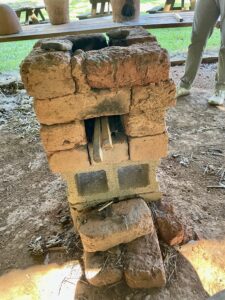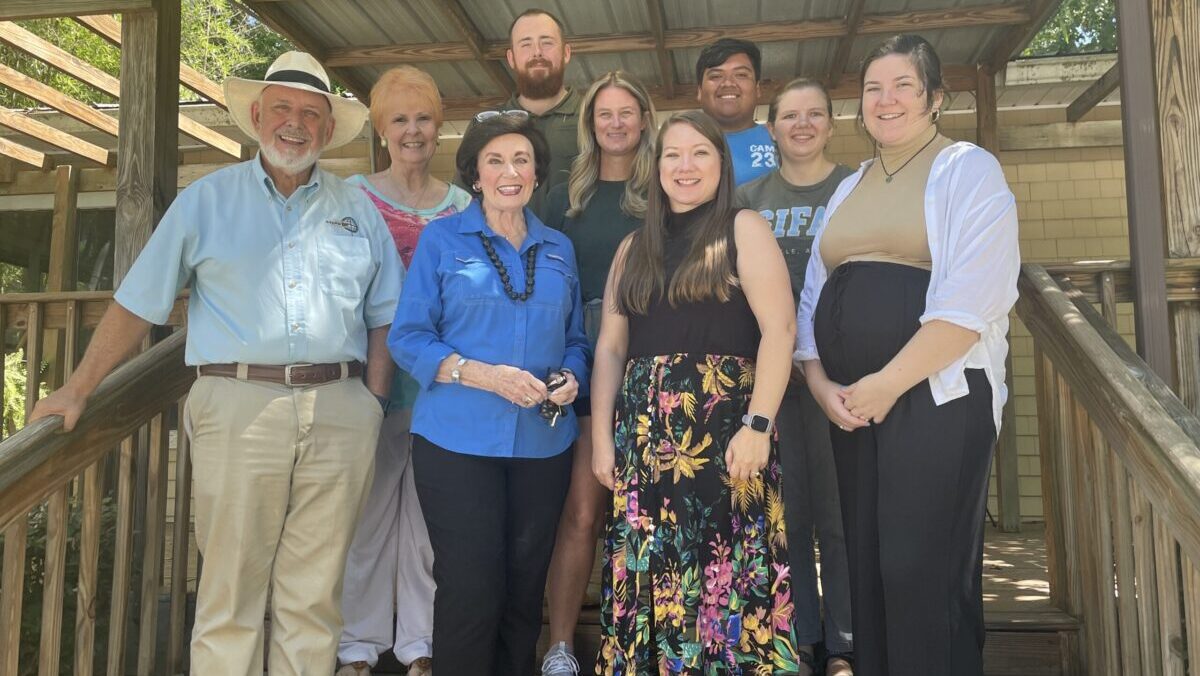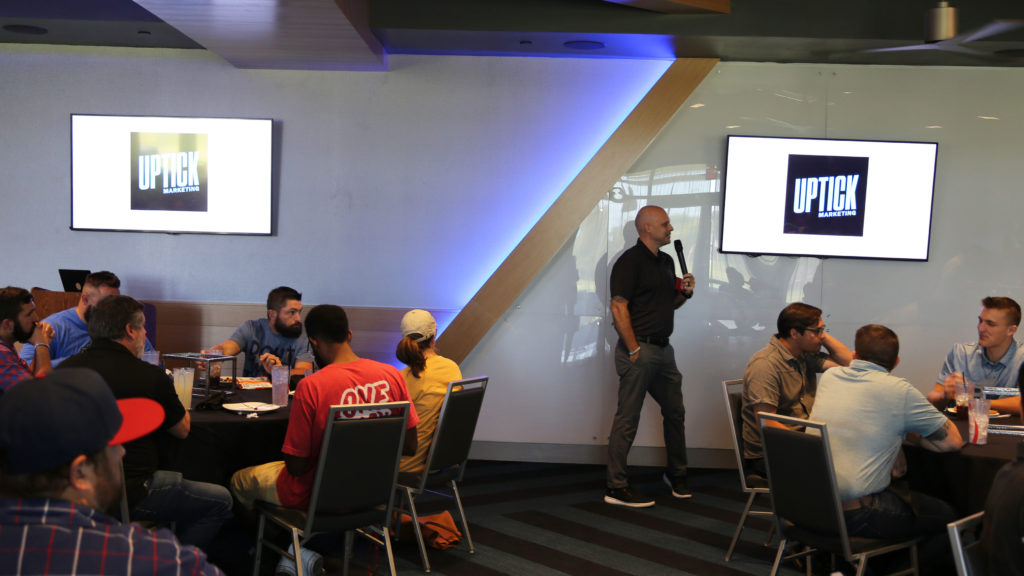Forty-four years ago missionaries Ken and Sarah Corson set out to serve the people of Bolivia. While there, they also saw the need to also meet people’s needs for food, housing and improved health and safety conditions. The Corsons recognized the need for teaching people in the most available and appropriate ways possible.
While engaged in their work, the Corsons realized a biblical truth: Addressing people’s physical needs is often a way of sharing the gospel. They are not alone in their thinking. Many Christians have discovered that meeting needs opens doors. Even Jesus, while on earth, exemplified the connection between his teachings and feeding or healing people.
The Corson’s desire to teach others led them to leave their missionary home in Bolivia and return to Sarah’s home in Wedowee. By 1979, they began turning property in Lineville into a training center that leveraged their capabilities as missionaries by training other missionaries. The results of their work were the seeds of what has become a campus with two names, the Southern Institute for Appropriate Technology or Servants in Faith and Technology. Most people simply call it SIFAT.
The Corsons, who are now in their 80s and live near the SIFAT campus, have trained hundreds of missionaries how to prepare to travel into developing countries and share faith and knowledge. Through the years, the couple, and more recently, their family members, have also been instrumental in bringing in foreign missionaries to teach the SIFAT staff about the needs people from other countries have and how to improve their lives, always appropriately.
Today, the 176-acre SIFAT is an attractive campus featuring a welcome center, an administrative office, lodging facilities, an educational building, storage areas, a store filled with colorful crafts from other countries and a village with various types of dwellings that some of the world’s poorest people might live in. The campus and its welcoming staff are overseen by the Corson’s son, Tom, 58.
SIFAT is set among Clay County’s rolling hills and forestlands. Recently, even on a hot day, a breeze ruffled the leaves and wild ferns along a small creek that zigzags through the hilly area that the staff calls the Global Village and Urban Slum.
As visitors walk through replicas of houses in the village area, the Corson’s grandson, Josiah, 27, tells how indigenous people from other lands have visited SIFAT and constructed the dwellings. At times, Auburn University’s engineering students and members of a group called Engineers Without Borders have also visited the campus.
Houses in the Global Village are built in a variety of ways and with different materials, such as bamboo, stones and mud, handmade bricks and mortar, and wood. The slum is made with discarded building materials that poor people use to create their housing.
“At one time or another,” Josiah said, “I have slept in each of these places — houses with rock beds, dirt floors, grass roofs and others.”
Often, especially during the summer months, Josiah gives tours of the village to church and youth groups, senior citizen organizations, college students and even the public, by appointment. Visitors can see how others live in the countries of Bolivia, Ecuador, Guatemala, India, Africa, Uganda, Nigeria, Nepal, Liberia and Philippines live. SIFAT has also found that their graduate missionaries have worked in close to 100 different countries. It is a busy campus where people come for spiritual retreats, conferences and educational programs.
The importance of the rocket stove

At the start of the tour, Josiah carried visitors to a pavilion where an expert who knew about appropriate technology, once taught SIFAT trainers how to make a “rocket” stove, so named because of how the flame shoots upward. The structure is an example of how faith and technology connect.
The stove uses a small stack of handmade bricks, one tin can that is bent in a certain way, and a scant number of wood scraps — three items often found in most places throughout the world. The use of such a stove can save lives.
“In some places, the smoke in dwellings where the women cook and the children stay is dangerous to their health,” Josiah said. “A stove like this produces very little smoke, creates enough heat to cook food and costs little or nothing.”
Josiah told how the stove allows for oxygen to flow through the brick structure, is efficient, safe, simple to build, and it can be adapted to produce smoke, which in some cases is needed.
Some indigenous people with grass roofs need smoke in the upper part of their houses to fill the food storage spaces built above the walls. The grass roofs tend to harbor bugs that would eat a family’s grain unless the smoke kills the bugs.
“We teach, and we listen to those who teach us,” Josiah said. “That way we can learn the exact needs of people, not the needs we think they need.”
Once missionaries listen, teach and show kindness to others, people are usually receptive to open their hearts to God who loves them, Josiah explained.
The future
Tom, SIFAT’s director, is one of Ken and Sarah Corson’s four children. After a career in environmental management, Tom decided to return home. His job at SIFAT is raising funds and managing its administrative side.
Tom sees a future that incorporates even more technology into the work of teaching the gospel.
For instance, SIFAT teaches its leaders and missionaries to help farmers irrigate their land using cola bottles that drip water. Even now, missionaries have learned that farmers in developing countries sometimes have access to technology that tells them exactly where to apply the precious commodity of water to their plants.
Another example is the scientific research that has led to a “Leaf for Life” program’s use of research. Places like SIFAT bring in science students who teach the trainers about how the plants that grow near people can be used for nutrition. Researchers have discovered, for instance, that the discarded leaves of the sweet potato plant when dried and pounded into a type of green flour can be used to make nutritious cookies and other baked goods.
Tom also sees more collaboration between SIFAT and universities. Already, students from the University of Alabama at Birmingham, Troy University, Samford University, Auburn University and others have students who have come to SIFAT for courses that allow them to conduct experiments with research they have learned.
“The internet is available for everyone so people are using it as appropriate technology even more,” Tom said.
He hopes when he retires, he can hand the keys at SIFAT to Josiah and say: ‘Continue to do the work of teaching appropriate technology.’”
Because Josiah and his wife, Caroline, are expecting a child in November, some day Josiah may be able to do the same.
Visit sifat.org to learn about its retreats, facility rentals and programs. SIFAT is located on 2944 County Road 113 in Lineville. Its number is 256-396-2015. Josiah Corson has a SIFAT podcast available on the website.
EDITOR’S NOTE — This story was written by Sherry Kughn and originally published by The Anniston Star.






Share with others: